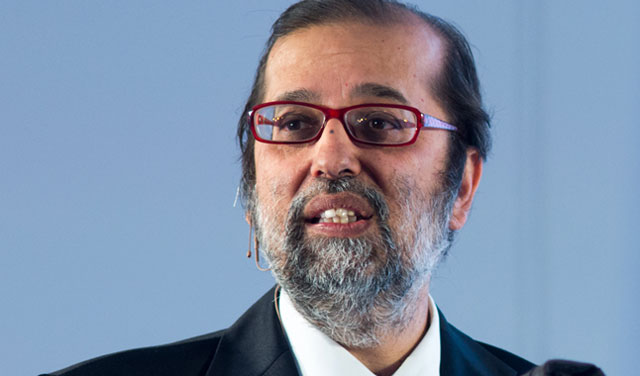 In the days following this week’s general election — the most interesting since 1994 — the focus will shift to who president Jacob Zuma will name to his new cabinet. Whatever shuffling he decides to do, he should leave the communications portfolio in the hands of Yunus Carrim.
In the days following this week’s general election — the most interesting since 1994 — the focus will shift to who president Jacob Zuma will name to his new cabinet. Whatever shuffling he decides to do, he should leave the communications portfolio in the hands of Yunus Carrim.
Carrim, who was parachuted into the position in the middle of last year — replacing Dina Pule — has made a few mistakes in his 10 months on the job and failed to move quickly enough on some issues. For the most part, though, he’s shown himself to be a very hard worker, and has quickly got on top of some of the complex issues bedevilling South Africa’s information and communications technology sector.
Carrim inherited a mess from his predecessor. He’s moved with speed to fix some of the more pressing problems. In others, like the crisis-racked SABC, he’s not intervened as actively (probably in part because of political imperatives).
In broad strokes, though, he’s done well. That’s not to say he’s universally liked. In fact, there are many people in industry who will celebrate if he is redeployed.
He’s courted controversy over his decisions around digital terrestrial television. But he’s been forced into the unenviable position of trying to resolve the poisonous war between MultiChoice, owned by Naspers, and e.tv, owned by Hosken Consolidated Investments, over set-top box control.
He’s tried his best to pacify both sides, proposing a policy that requires set-top box control without forcing broadcasters to encrypt their channels. It’s a political solution where a practical one was needed and has led to further confusion, with little consensus in the industry about what the policy actually means. Carrim is clearly still hoping to avert a messy legal battle. But a breakthrough looks unlikely and the courts may have to decide the matter.
MultiChoice has even attacked Carrim publicly, taking out newspaper advertisements decrying his position on set-top box control. On one hand, it could be argued that such vocal criticism is the sign of a healthy democracy. On the other, it raises disquieting questions about why MultiChoice feels emboldened to attack a government minister in public.
It is unfortunate that Carrim has not been able to resolve this dispute before the election. There is now unlikely to be any real progress for at least the next month. And if Carrim is replaced, it will take many months for his successor to get on top of the issues. All the while, the mid-2015 deadline to complete digital migration is edging closer. Already, the chances of South Africa meeting its commitment to the International Telecommunication Union to complete its migration project are virtually nil.
That’s bad news for the country, which stands to lose out on billions of rand in GDP because it isn’t acting soon enough to open up the “digital dividend” — spectrum that will be freed up through migration — to broadband operators.

It is also unfortunate that the department of communications has not issued a policy on the digital dividend and other so-called “high-demand spectrum bands” before the election. While regulators across the developed world have already made solid progress in opening these bands to provide speedier broadband networks, South African operators have been forced to reallocate their existing but already stretched spectrum assets to provide rudimentary 4G coverage. Although there are encouraging signs that the department of communications is making progress on this issue, the mechanics of spectrum allocation must still be established.
There are plenty of other issues Carrim is acting on. He’s moved, for example, to fix the perennial mess at the Universal Service & Access Agency of South Africa, calling in the Special Investigating Unit to probe the agency, which is meant to (but doesn’t really) deliver ICT services to the poor. A complete overhaul of the agency is needed.
The deadline-driven Carrim has achieved a lot in a short space of time and has infused new energy into what had become a moribund government department. It would be unfortunate if he were redeployed — to make way for the eighth communications minister since 1994 — just as he was starting to get things done.
- Duncan McLeod is editor of TechCentral. Find him on Twitter
- This column was first published in the Sunday Times




